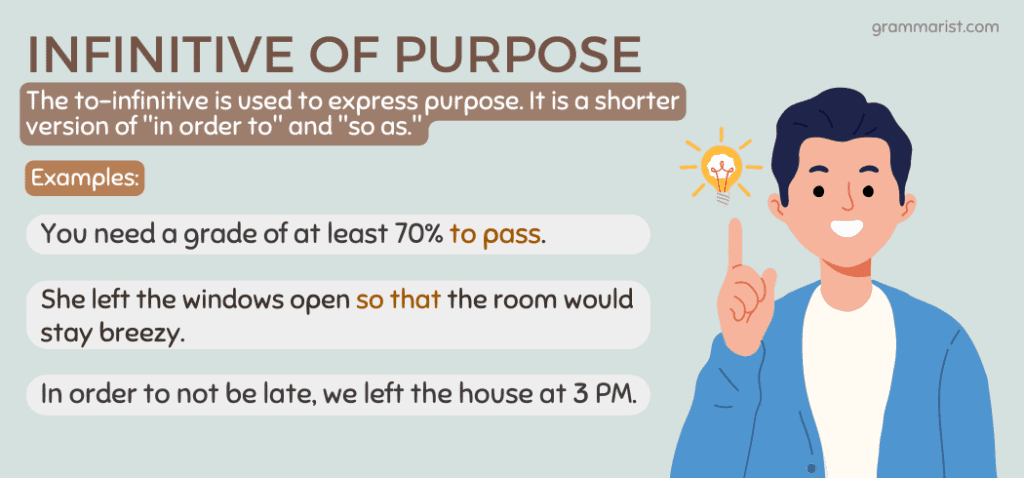Our actions almost always have intentions behind them. But how do we express these purposes in English? That’s where the infinitive of purpose enters!
“I am studying to be a doctor” is an example of a sentence with an infinitive of purpose. Keep reading to learn the definition and examples of the infinitive of purpose of to-infinitive as I go through everything you need to know.
The Infinitive of Purpose

The to-infinitive is used to express purpose. It is a shorter version of “in order to” and “so as.” Here are some examples.
- I’m calling in order to inform you that your special delivery is on its way.
- I’m calling to inform you that your special delivery is on its way.
- I went to the party so as to see him.
- I went to the party to see him.
- You need a grade of at least 60% in order to pass.
- You need a grade of at least 70% to pass.
The to-infinitive form stays the same no matter the tense of the main verb. For example:
- Future simple: I will sleep early to feel refreshed tomorrow.
- Past simple: I went to the store to buy milk.
Only use the infinitive of purpose if the action doer expressed by the infinitive is also the subject of the main clause. But if the subjects are different, the best alternative is so that. For example:
- My parents enrolled me in a university so that I could be a lawyer.
- She left the windows open so that the room would stay breezy.
We can also use in order + that-clause in a more formal context. For example:
- The organization is doing its best in order that all appointments may be dealt with efficiently.
Negative Infinitive of Purpose
The examples above show the infinitive of purpose in a positive form. When formulating an infinitive of purpose in negative form, we use not + to-infinitive. For example:
- I told him not to eat the cake before dinner.
We can also use so as + not + to-infinitive and in order + not + to-infinitive. For example:
- He wore his eyeglasses so as not to experience eye strain.
- She woke up early in order not to miss the bus.
Let’s Review
The structure of “infinitive of purpose” or to-infinitive says why the subject is doing something. But if the subject is different from the doer, we use so that. In more formal contexts, we may use in order to, so as, and in order that.